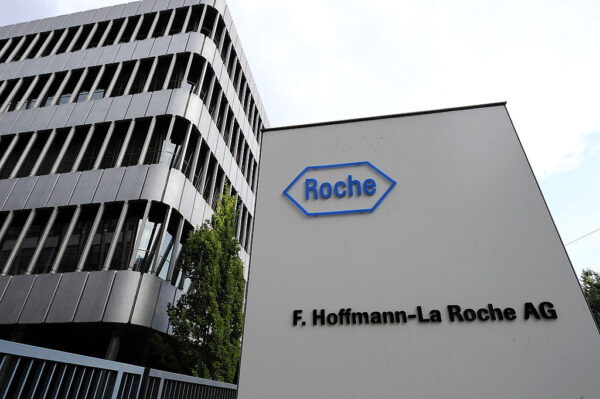
Novo Nordisk and Eli Lilly blazed the trail for drugs that hit certain key targets to treat diabetes and obesity, but Roche says its Carmot Therapeutics acquisition puts the Swiss pharmaceutical giant in position to develop a slate of new metabolic disorder medications that could become the best of this fast-growing drug class.
Roche announced Monday it agreed to pay $2.7 billion to buy Berkeley, California-based Carmot, which brings three clinical stage programs. For Roche, whose drug portfolio and pipeline is dominated by cancer, the deal places it solidly in the mix of companies pursuing new metabolic disorder products.

Using Informed Awareness to Transform Care Coordination and Improve the Clinical and Patient Experience
This eBook, in collaboration with Care Logistics, details how hospitals and health systems can facilitate more effective decision-making by operationalizing elevated awareness.
Metabolic disorder drugs have taken off with products that activate incretins, which are gut hormones secreted after eating that play a role in regulating blood sugar and suppressing appetite. This class of drugs include Novo Nordisk’s Ozempic for diabetes and Wegovy for obesity, both of which work by activating a receptor called GLP-1. Eli Lilly type 2 diabetes drug Mounjaro and its recently approved weight management product Zepbound target GLP-1 and another receptor called GIP.
Carmot’s lead program is CT-388, a peptide designed to activate GLP-1 and GIP. But Carmot aims to stand apart from Lilly’s molecule and others with a technology platform it says enables the design of drugs with biased signaling, which is the emphasis of pathways desirable for a drug while also de-emphasizing pathways that would lead to poor tolerability or efficacy. CT-388, a once-weekly injectable medication, is ready for Phase 2 testing in obesity patients with and without diabetes. Carmot contends the biased signaling of this drug could lead to greater weight loss and blood sugar control as well as better tolerability. Some supporting data are already available. In June, the company reported early clinical data showing an average weight loss of 8.4%, or 17 pounds, in the highest dose group. Roche found those results compelling.
“We are encouraged by the clinical data for the lead asset CT-388, which demonstrated substantial weight loss in Phase 1b,” Levi Garraway, Roche’s chief medical officer and head of global product development, said in a prepared statement. “These data suggest the potential for a differentiated profile to treat obesity and its associated diseases. The broad Carmot portfolio offers different routes of administration and opportunities to develop combination therapies that treat obesity and potentially other indications.”
The other clinical-stage Carmot programs are CT-868, a once-daily GLP-1 and GIP agonist in Phase 1 testing as a treatment for type 1 diabetes patients who are overweight or obese. The biotech is also developing a once-daily oral drug. The small molecule, CT996, is in Phase 1 testing as a potential treatment for patients who are obese and have type 2 diabetes.

The Impact Brands: Empowering Wellness Through Natural and Holistic Solutions
In an era of escalating healthcare costs and a growing preference for natural, holistic approaches to health, The Impact Brands emerges as a collective of diverse brands dedicated to supporting overall wellness through natural means.
Roche sees the incoming Carmot assets as more than potential standalone products. The pharma giant is also interested in testing Carmot’s molecules in combination with its own pipeline assets that offer other benefits, such as preserving muscle mass. Preserving muscle is important for metabolic disorder products. One of the problems with earlier weight-loss drugs was much of the weight reduction came from losing muscle, which is not where anyone wants to lose weight. Roche also said the Carmot portfolio could expand to other indications where gut hormones play a role, such as cardiovascular, retinal, and neurodegenerative disorders.
The deal positions Carmot to tap the resources of a large pharma company at a time when raising money is challenging. Last month, Carmot filed regulatory paperwork for an IPO to support development of its pipeline. Now the company won’t have to worry about trying to go through an IPO window that has been mostly closed to the biotech sector this year.
The $2.7 billion that Roche is paying is an upfront payment. Carmot had raised about $371 million since its founding in 2008, according to its IPO filing. The company could receive up to $400 million in milestone payments tied to the progress of its programs. Roche will retain all of Carmot’s employees, who will join the pharma giant’s pharmaceuticals division. The companies expect to complete the transaction in the first quarter of 2024.
Photo: Giuseppe Aresu/Bloomberg, via Getty Images












